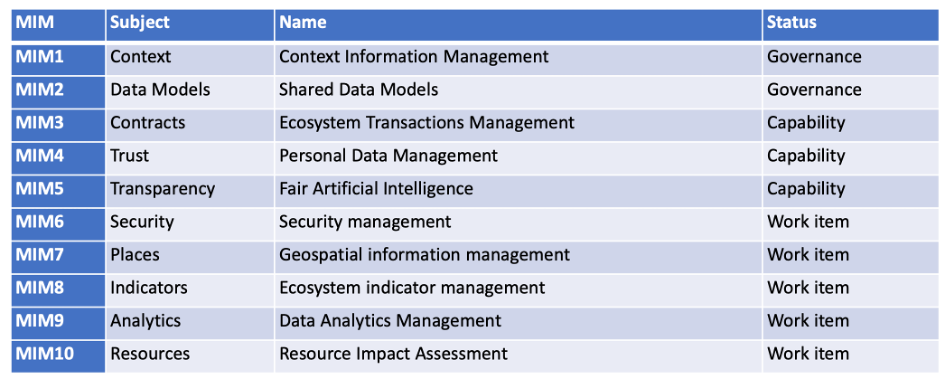MIMs – the key to interoperability?
There is a very rapid data-driven societal development going on right now, where the future of the Internet of Things (IoT) plays a crucial role by connecting us humans with systems and things.
Many argue that IoT is a prerequisite for realising important sustainability goals, not least for our municipalities.
Fundamentally, it is a matter of collecting, organising and using data to develop and build new services and tools that can then be used in work intended to improve, streamline and make accessible.
Why interoperability is so important
In order to use and share data between different systems, applications and users, the formats of the information need to be recognisable, readable and able to communicate with each other. Work is well underway to develop standards that facilitate data sharing and increase the ability of data to work together in different systems, known as interoperability. Speaking the same language creates the conditions for better availability of data and systems, regardless of the provider.
In other words, we need data that is accessible, but also of high quality. This will foster the development of scalable and efficient system solutions and create a huge market for new services and products in smart cities. The aim is to develop platforms for institutions, businesses, municipalities and citizens to facilitate work across domains.
MIMs – a minimum level of interoperability
Full interoperability would mean compliance with a large number of detailed standards, requiring significant resources. In order for as many as possible to benefit from an open market – including small and medium-sized towns and municipalities and those with limited resources – a “minimal” level of interoperability is needed. This means sufficient interoperability to allow “good enough” integration of systems, contributing to the development of a healthy market based on the demand of need owners to be able to reduce costs, minimise risks and prevent lock-in.
Open and Agile Smart Cities (OASC) is an international membership network of municipalities and cities. It has developed sets of specifications that support different aspects of a local data ecosystem, called MIMs (Minimal Interoperability Mechanisms). The MIMs provide the technical basis for the procurement and distribution of urban data platforms and end-to-end solutions in cities and communities around the world, and are transparently curated in a continuous process by members of the OASC network.
MIMs are based on open APIs
The basic requirements for MIMs are that the local data system is based on interfaces that are open for the exchange of data, so-called open APIs (Application Programming Interfaces). A city or municipality therefore needs to use a framework (architecture) that supports a platform for open, flexible and easily distributable open data/APIs.
At present, OASC has developed 10 MIMs, of which the earliest ones (MIM1 and MIM2) have already been successfully used for several years – mostly in the context of setting requirements for various municipal and public procurements.
• MIM1 (Context Information Management) ensures that IoT data can be appropriately linked in data sets/data streams
• MIM2 (Common Data Models) ensures that all devices used in data sets/data streams are described with consistent and machine-readable data
MIMs 3–10 are at various stages of development in a process that will culminate in a final governance model. Please see the figure.

MIM work is prepared and developed in working groups, through network representatives (members and partners). Testing, definition and decision-making on specifications, etc. then takes placed at different stages, culminating in final approval by the highest authority – the Council of Cities. It is important that the work is well anchored and ensured through testing before an MIM is rolled out.

MIMs will play an increasingly important role in supporting greater harmonisation. MIM1 and MIM2 are already being used by several different Swedish municipalities in public procurement. From an international perspective, various EU programmes will require MIM principles as programme support and for the implementation of projects in sustainable and smart cities.
Are you interested in learning more? Take part in a new Swedish project aimed at municipalities: Smart City Lab – a further development of City as a Platform (CaaP).

Written by:
Christina Öhman
Research Institutes of Sweden (RISE)
Christina Öhman is managing business development and innovation at RISE, with over 25 years’ experience in design and innovation covering a range of sectors including; architecture, smart cities, IT, energy and innovation management. She is currently part of the project Smart City Lab Smart City Lab.
